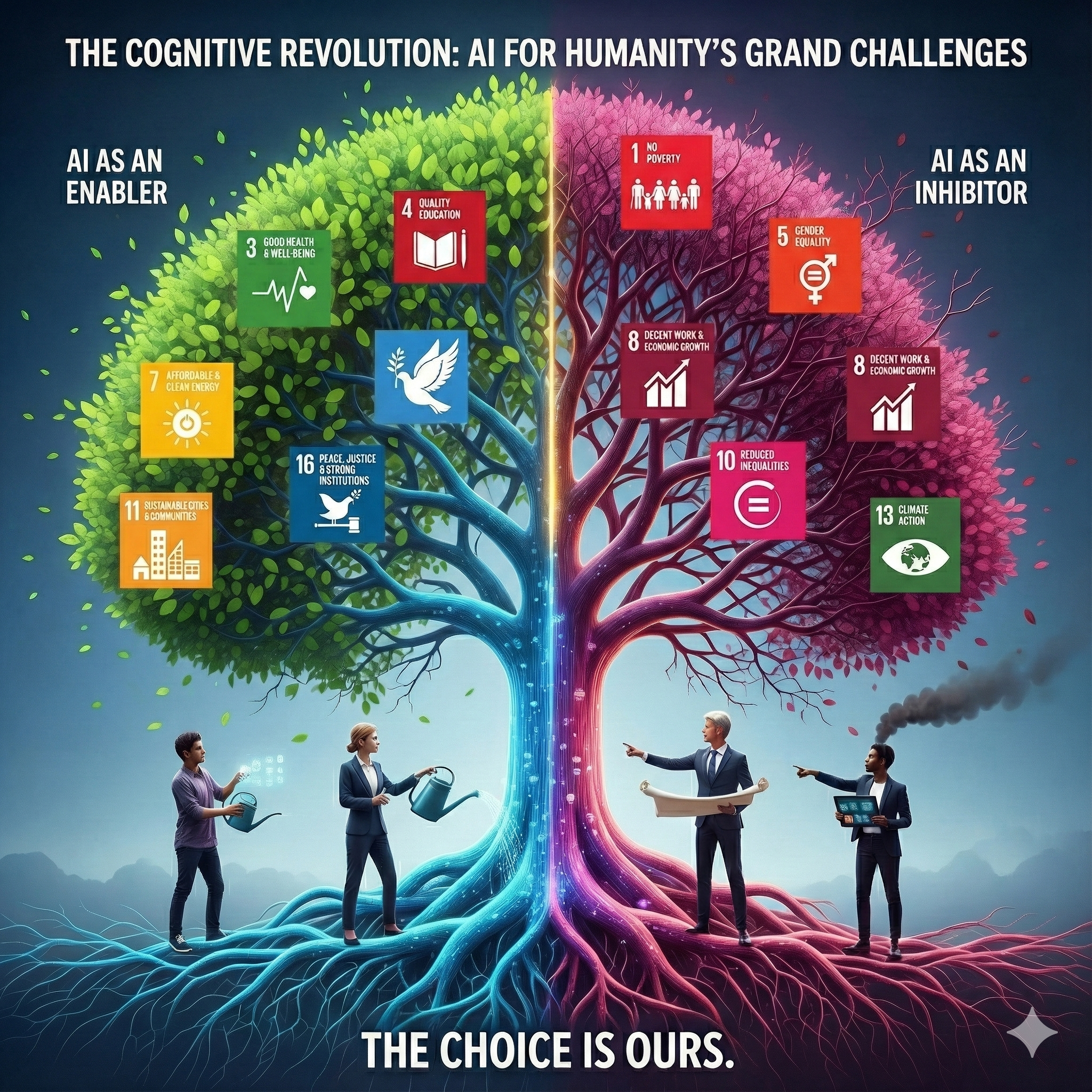The Cognitive Revolution
Artificial Intelligence stands to reshape our world. Its path is not predetermined; it is a matter of deliberate societal choice. This page explores AI's dual impact on the UN Sustainable Development Goals (SDGs) and outlines a collaborative roadmap for architecting a future that is not only intelligent but also wise, equitable, and sustainable for all.
AI's Duality: Enabler and Inhibitor for the SDGs
Research reveals AI's complex relationship with the Agenda. While it can enable 79% of SDG targets, it also risks inhibiting 35%.
Goal-by-Goal Analysis: An Interactive Map
Click on any of the 17 Sustainable Development Goals below to explore specific examples of how AI can help or hinder progress.
✅ AI as an Enabler
❌ AI as an Inhibitor
Virtuous vs. Vicious Cycles
The Virtuous Cycle 🌿
Proactive, collaborative stewardship. AI in precision agriculture increases crop yields (SDG 2), reduces water use (SDG 6), and boosts farmer incomes (SDG 1 & 8).
The Vicious Cycle 🔥
Reactive, fragmented deployment. Fossil-fuel-powered data centers for climate modeling directly inhibit clean energy goals (SDG 7) and worsen emissions.
A Call to Action: An Agenda for Stakeholders
The future of AI is a product of deliberate design, not destiny. By embracing systems thinking, emotional intelligence, strategic foresight, and anticipatory governance, we can collectively architect a Cognitive Revolution that genuinely serves the needs of all humanity.

